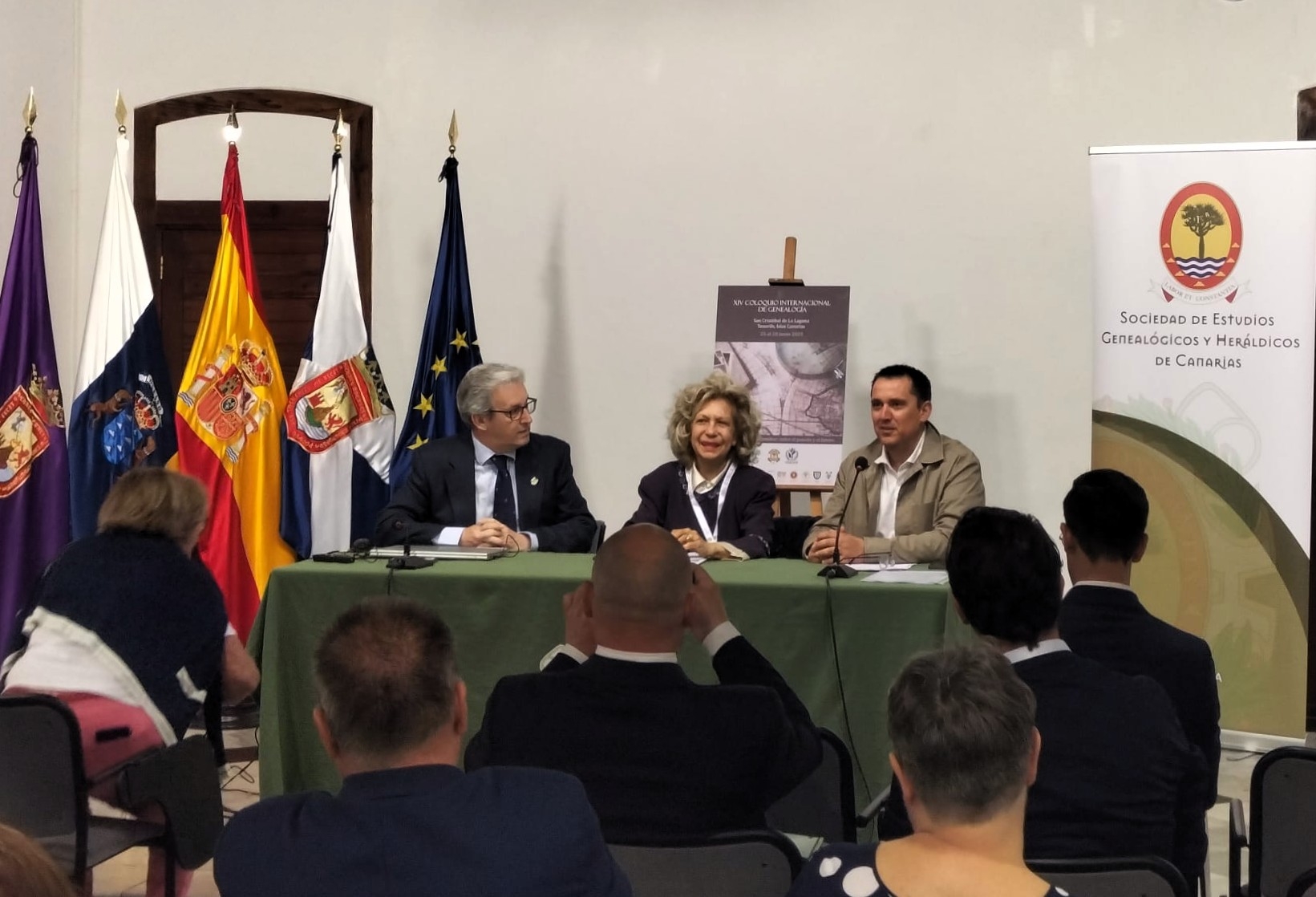The Society of Genealogical and Heraldic Studies of the Canary Islands (SEGEHECA) arrives in the World Heritage city of the Canary Islands after visiting cities such as Paris, Rome, Lisbon, Cambridge, Boston and Madrid. Until 28 June, this important event will bring together leading researchers from all over the world at the former convent of Santo Domingo, an important 16th century building that has now been converted into the cultural headquarters of the Tenerife municipality.
Adolfo Cordobés was accompanied at the inaugural table by the president of the Académie Internationale de Généalogie, Maria Loredana Pinotti degli Uberti, and the president of SEGEHECA, Fernando D. Rossi-Ferraroli Delgado. The mayor welcomed all the attendees to La Laguna, a city which, ‘with its rich cultural heritage and its historical role as a bridge between Europe and America, is proud to be a meeting point for research and the exchange of knowledge on genealogy and family history’.
“The conferences that will take place over the course of these days will not only allow us to deepen our knowledge of our roots and strengthen the ties that unite us as a community, but will also encourage the exchange of ideas and innovative methodologies. The speakers accompanying us in this edition are true leaders in their respective fields and their presence at this event is a testimony to the relevance and prestige of this initiative,” added Cordobés.
From today until Saturday, the ex-convent will host more than 30 interesting lectures and book presentations, all under the slogan ‘Genealogy and family history: between the past and the future’. From the origins of Genghis Khan to the Canarian heritage in America, the full and intense programme will allow the future of the research process linked to genealogical science and family history in different territorial areas to be shared and analysed.
The programme of this 14th Colloquium will also provide innovative trends in this field of study and will delve into new complementary ways of understanding genealogy, ranging from DNA to geopolitics and tourism. It also incorporates a local and ethno-historical look at the survival of indigenous surnames in the Canary Islands or different family lines that connect with different European countries.
This edition, supported by the International Academy of Genealogy, has the collaboration of the Department of Cultural Heritage of La Laguna and the International Confederation of Genealogy and Heraldry. Although access is reserved to registered persons, as it is a technical congress, the lectures can be followed openly and free of charge, on the channel www.youtube.com/@FamilySearchEurope.
The programme of conferences and activities is available at www.segeheca.com/XIV-Coloquio-Internacional-de-Genealog-a/.



